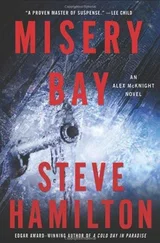If Dee White died of any "fatal disease," that was it: the time bomb of the self. I too had come close, that butterfly needle poised over that bulging vein in my antecubital fossa. And this is normal male life? No. Healthy growth is through and toward connection. We don't have to be heroes, and our alternative is not being wimps. We've just got to live human-sized lives.
Berry and I and Lizzie Qun are here to start living in a place where spirit is not split off and mocked, where, without self-consciousness, we can start to talk about being part of this wholeness, this spiritual life, this faith in life carried on the stream of connections, this sense that if there is a "serf it
came as an attempt to organize the onrush of associations from our overriding brain cortex, that any "self is made up only and wholly of "nonself parts, and that we can no more use the old way of thinking about "self " and "other" without regard for the mutual connections than we can, at the other end of the spectrum, use the old way of thinking of particles of matter, because the new physics has shown mat there are no such things as isolated Newtonian particles like those little plastic balls of organic chemistry, but rather that what we call "particles" of matter are in fact only the mutual relationships among the particles, which means, if you really take that in, that the universe is made up not of fundamental pieces but of a pliant fabric of mutual co-arisings, of relationships and connections, of the very stuff which we, split off as humans, aspire to rejoin.
"This rock," I say to Berry, "is energy, like the sky."
But she's asleep. Lizzie's asleep. I sleep.
After a while our baby awakens us. We put her in the Tough Traveler and head upstream toward the trail mouth, which leads up, and out.
GAINING THE RIM, Lizzie on my back babbling with all the strength of the sun, everything being more real, bulging and blazing, my heart feels ripe. I sense the baby's energy field, surrounding my head like a halo, reminding me that there's a whole other world out there, beyond words, to which she is attuned, like when she knows that our cat is in the room before she can see or hear it, or when she senses in a person-no matter how attentive to her-a phoniness, and she flinches, turns away and starts to cry. These energies exist, in that world of mere being.
Catching my breath in the rare high air, I turn with Berry and look back, out over the vista, down to where we'd been.
"If there's a heaven," I say, "this is it."
"Khreeeeh op!" says Lizzie Qun, our present moment.
We laugh. Lizzie laughs. We laugh more. Lizzie laughs more.
"I'm so happy!" I say. "No one ever tells you, with a baby, how much fun it is!"
"How could they? It's not something you can tell."
"Isn't it true," I ask, "that before Lizzie Qun, we only
seemed to learn things through suffering, and now we're learning through joy?"
"Sweetie!" she says, squeezing my hand. And then suddenly she lets go. "Uh-oh."
"What?". „
Berry sniffs our baby's bottom. "She needs changing.
"Who doesn't?"
"Where's the diaper?"
We find the diaper, and lay Lizzie Qun down on the hood c our truck. She smiles, and reaches a hand up toward us, o maybe toward the sky.
Laws of Mount Misery
I. There are no laws in psychiatry.
II. Psychiatrists specialize in their defects.
III. At a psychiatric emergency, the first procedure is to check your own mental status.
IV. The patient is not the only one with the disease, or without it.
V. In psychiatry, first comes treatment, then comes diagnosis.
VI. The worst psychiatrists charge the most, and world experts are the worst.
VII. Medical school is a liability in becoming a psychotherapist.
VIX. Your colleagues will hurt you more than your patients.
IX. You can learn everything about a person by the way he or she plays a sport.
X. Medical patients don't take their medication fifty percent of the time, and psychiatric patients don't take their medication much at all.
XI. Therapy is part of life, and vice versa.
XII. Healing in psychotherapy has nothing to do with psychology; connection, not self, heals.
XIII. The delivery of psychiatric care is to know as little as possible, and to understand as much as possible, about living through sorrow with others.










